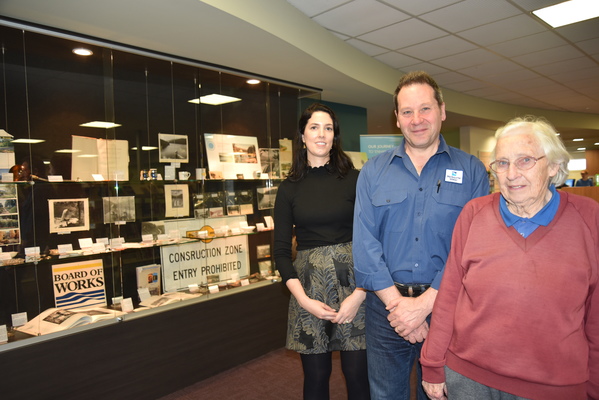
By Wendy Williamson
Healesville Library is getting in early with its celebrations of History Week, 15-22 October.
All this month the library is hosting displays from Melbourne Water in association with the local historical society marking the 90th anniversary of the completion of Maroondah Dam in 1927.
The Healesville and District Historical Society display charts the history, on illustrated boards, of the Maroondah Water Supply Scheme at Healesville from its early days as the Watts River Scheme to now when it is an integral part of Melbourne’s water supply.
Accompanying this display is an exhibition assembled by Melbourne Water’s heritage staff. It features artefacts from the Maroondah Collection at Preston Reservoir.
Items on display behind the glass include books with early photos of Maroondah Reservoir, a pick from the 1930s, Board of Works signs from the old MMBW and a surprising variety of tourism merchandise. These include teaspoons, bottle openers, ashtrays and postcards featuring pictures of the reservoir.
“Maroondah Reservoir was quite the place to go in the early years and visitors wanted souvenirs,” explained Melbourne Water archaeologist Penelope Spry, who assembled the exhibition with heritage manager Paul Balassone.
In addition to the month-long exhibition, during History Week visitors to the library will be able to view historic footage of the construction of the dam and listen to talks delivered by Melbourne Water experts.
At 2pm on Monday 16 October, in ‘Water for Healesville’ John de Boer will talk about the history of Healesville’s water supply network from the 1890s to the 1990s.
At 10.30am on Tuesday October 17 the focus will turn to the future.
Con Gantonas will talk about the Maroondah-Coranderrk Liveability Plan, outlining the exciting recreational opportunities created by the decommissioning of the aqueducts.
The talks are free. Contact the library for further information/bookings.






